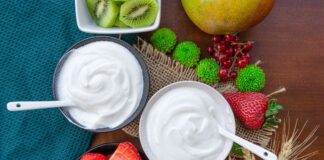Blackberries are a nutrient-dense fruit offering significant health advantages, from improved digestive function to reduced risk of chronic disease. This guide details the science-backed benefits, nutritional profile, potential risks, and practical ways to incorporate blackberries into your diet.
Nutritional Powerhouse: What Blackberries Offer
A single cup of raw blackberries provides approximately 62 calories, 14 grams of carbohydrates, 8 grams of fiber, and substantial amounts of essential vitamins and minerals. Notably, they deliver 34% of the Daily Value (DV) for vitamin C, 24% for vitamin K, and a remarkable 40% of your daily manganese needs.
Why this matters: Modern diets often lack sufficient fiber, leaving many people deficient. Blackberries address this gap with nearly 8 grams per cup – covering nearly 30% of the recommended daily intake. Vitamin C is critical for immune function, while vitamin K is essential for blood clotting and bone health. Manganese supports energy metabolism and nervous system function.
Four Key Health Benefits of Blackberries
- Fiber for Digestive Health: The high fiber content in blackberries promotes regular bowel movements, nourishes gut bacteria, and may protect against digestive conditions like colon cancer and diverticulitis.
- Vitamin & Mineral Rich: Blackberries are a good source of folate (essential for cell division, especially during pregnancy), vitamin C (immune function), vitamin K (blood clotting), and magnesium (muscle and nerve function).
- Anti-Inflammatory Properties: Blackberries contain anthocyanins, ellagic acid, and quercetin – powerful antioxidants that combat free radicals and reduce inflammation. These compounds may lower the risk of heart disease and neurodegenerative conditions. A 2020 study confirmed blackberries have the highest antioxidant levels compared to other berries.
- Heart Disease Prevention: Regular blackberry consumption supports heart health by reducing inflammatory markers (like CRP) and increasing beneficial HDL cholesterol levels. Studies suggest that an anthocyanin-rich diet can lower the risk of heart disease incidence by up to 27%.
Potential Risks and Considerations
While generally safe, blackberries contain salicylates, compounds that may trigger reactions in salicylate-sensitive individuals. Symptoms can include nasal congestion, abdominal pain, and hives. This sensitivity is more common in people with asthma or related conditions.
Additionally, though rare, blackberry allergies are possible.
How to Incorporate Blackberries into Your Diet
Blackberries are versatile and can be enjoyed in numerous ways:
- Fresh Consumption: Add to salads, yogurt, oatmeal, or chia pudding.
- Frozen Use: Ideal for smoothies, baked goods, or long-term storage.
- Culinary Applications: Cook down for dressings, sauces, or homemade jam (using chia seeds and maple syrup as natural sweeteners).
- Beverages: Toss into still or sparkling water for flavor.
Blackberries are not just a delicious treat but a powerful addition to any health-conscious diet. Experiment with recipes and enjoy the benefits of this nutrient-rich fruit.
In conclusion: Blackberries provide a potent combination of fiber, vitamins, antioxidants, and anti-inflammatory compounds, making them a valuable asset for digestive, cardiovascular, and overall health. While potential salicylate sensitivity exists, the benefits far outweigh the risks for most individuals.























